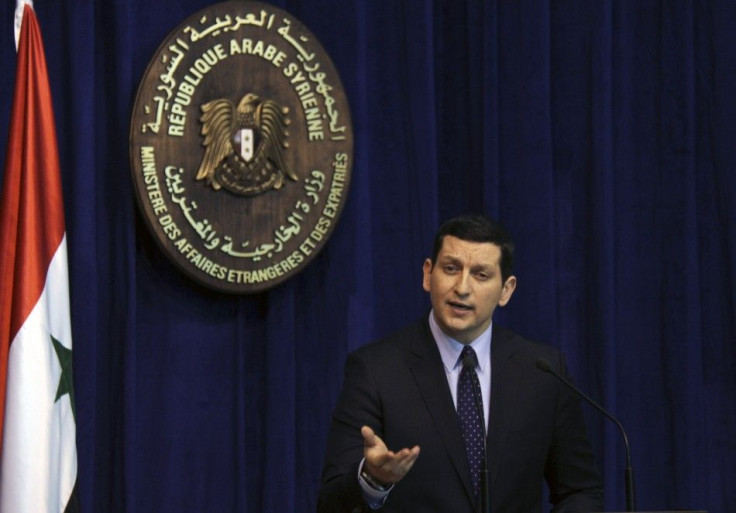Syria Admits It Has Chemical, Biological Weapons
Says it would use them if attacked by foreign powers

The Syrian government for the first time acknowledged Monday it has chemical and biological weapons and that it would use them to repel any foreign attack.
The ministry wants to re-affirm the stance of the Syrian Arab Republic that any chemical or bacterial weapon will never be used -- and I repeat will never be used -- during the crisis in Syria regardless of the developments, Foreign Affairs Ministry spokesman Jihad Makdissi said, according to The Jerusalem Post. These weapons are stored and secured by Syrian military forces and under its direct supervision and will never be used unless Syria faces external aggression.
The admission could raise the stakes considerably. The presence of chemical and biological weapons in a politically unstable country has Israel fearing that such weapons could end up in the hands of groups that would try to use them against the Jewish state.
A senior U.S. intelligence official told The Associated Press that the Syrian government has moved to consolidate these weapons in the northern part of the country, itself concerned that the weapons could end up in the hands of forces that could use them against the Assad regime.
Makdissi also said that terrorist groups might be supplied biological weapons for external forces then use them in Syria to make it appear that the government had used them. The Syrian government routinely refers to rebel forces, including the Free Syrian Army, as terrorists.
He also condemned Arab leaders' demand for President Bashar al Assad to step down, echoing Russia's stance that the current government is the legitimate and sovereign authority of the state. In an emergency meeting Sunday evening in Qatar, the Arab league said it would offer Assad a safe exit if he steps down quickly and leaves the country.
We call on the opposition and the Free Syrian Army to form a government of national unity, said Qatari Foreign Minister Sheikh Hamad bin Khalifa Al-Thani, according to CNN.
Foreign ministers from the European Union states are meeting Monday to discuss stengthening the arms embargo.
However, it's unclear which of the two primary rebel forces -- the FSA or the Salafists, forces comprised of hardline Sunni Islamists -- is emerging as the primary force. The FSA is widely believed to be backed by Western intelligence and Arab states. The FSA command is stationed across the border in Turkey.
Meanwhile, clashes continued in the capital Damascus and Aleppo, Syria's largest city and commercial center.
Syrian state television said Sunday that outside parties have been trying to hijack the country's media in order to falsely report defections or areas that have fallen to rebel forces.
Since Saturday, government forces have retaken districts in Damascus that had fallen briefly into rebel control, according to the BBC. There have been reports of captured rebels being executed shortly after being captured by military forces.
Local television appeared to be trying to show who is in control of the capital with footage of Syrian forces conducting house-to-house searches.
© Copyright IBTimes 2024. All rights reserved.





















